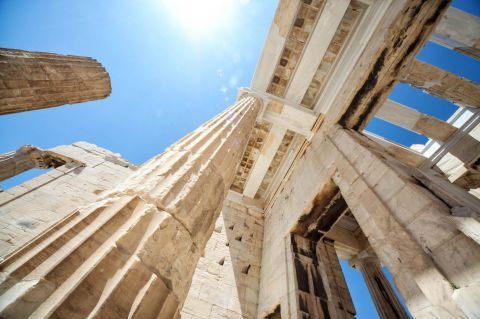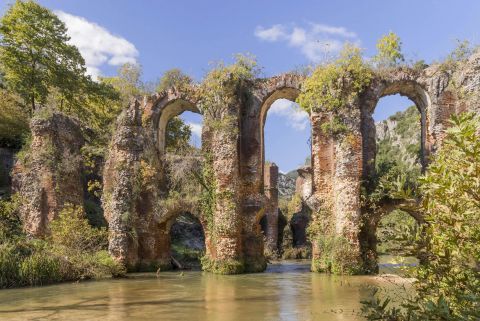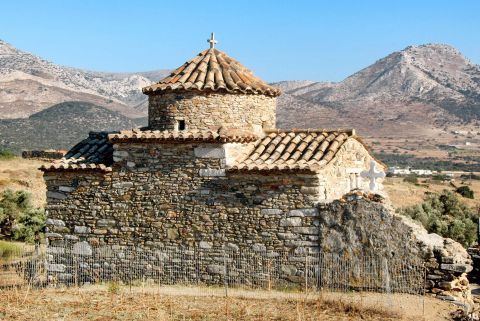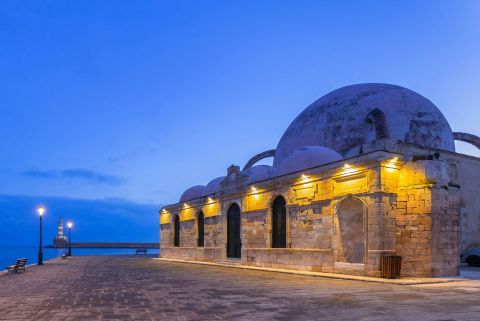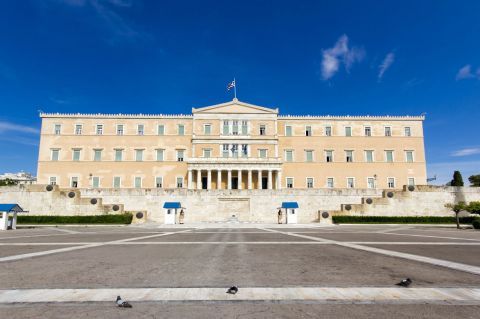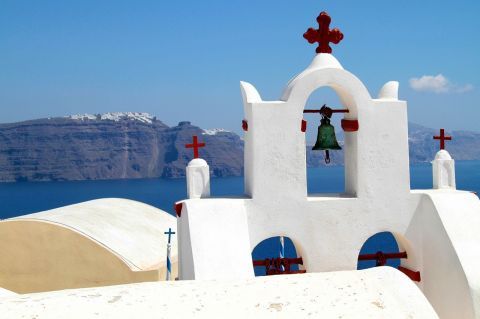The Parthenon of the Acropolis of Athens
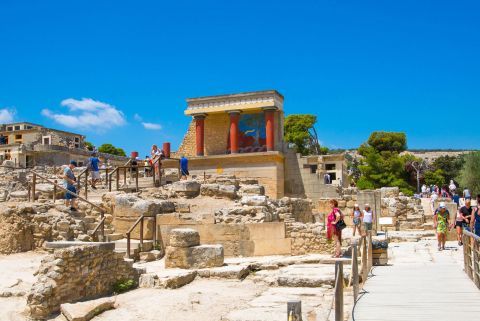
Bronze age
Excavations have shown that the first settlement dates back to the Palaeolithic era (11000 - 3000 BC).
During the second millennium BC, Greece gave birth to the great stone and bronze civilizations: the Minoans (3500 BC - 1100 BC), the Mycenaeans (1750 BC - 1050 BC), and the Cycladic civilization (3100 BC - 1000 BC).
These were the first important civilizations in Greece but also world history.

